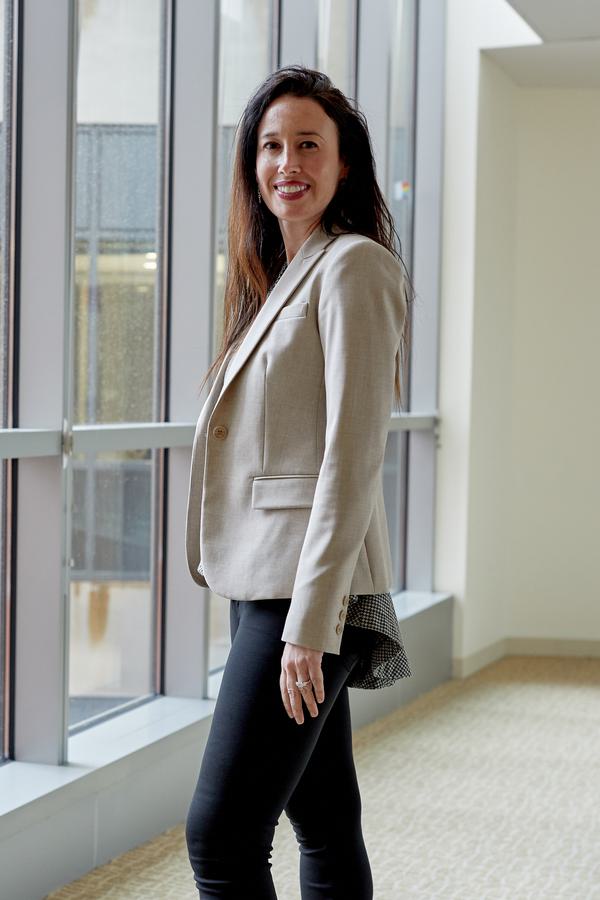Cigall Kadoch, the cofounder of Foghorn Therapeutics, is one of the stars of Flagship’s ecosystem. In 2013, while still a graduate student at Stanford University, she discovered an overlooked link between defects in a chromatin remodeling complex (which unspools the tightly coiled DNA in our cells to allow the information in genes to become accessible and form mRNA and protein products) and a variety of human cancers.
At the time, Kadoch was completing her graduate training in the laboratory of the pioneering chromatin researcher Gerald Crabtree, where she studied a chromatin regulatory complex known as BAF. She observed that nearly all cases of the childhood cancer synovial sarcoma can be linked to a genetic mutation in one of the BAF proteins. Kadoch was able to halt the rampant growth of synovial sarcoma cells by forcing BAF to eject the mutant protein. In 2015, she discussed her findings with Flagship Pioneering managing partner Doug Cole, who suggested creating a company that would develop an entire range of therapeutics for cancers and other diseases caused by altered chromatin function. Together, Cole, Kadoch, and Crabtree founded Foghorn Therapeutics, in 2016.
Originally known as FL38, Foghorn is developing Gene Traffic ControlTM , a broad platform of proprietary techniques that target diseases with genetically determined dependencies in the chromatin regulatory system. Foghorn scientists isolate, purify, and characterize chromatin remodeling complexes (CRCs) to reveal mutations in component proteins that are directly implicated in specific conditions. By linking these disease-causing mutations to defined patient populations, the company is translating biological insights into a rich and diverse drug development pipeline. “As we’ve applied this approach, it has revealed multiple unprecedented mechanisms of developing cancer,” explains Doug Cole. “These insights have opened up very promising strategies to create drugs to correct these defects.”
Today, Kadoch is an assistant professor in the Department of Pediatric Oncology at the Dana-Farber Cancer Institute and Harvard Medical School and an institute member and the co-director of the Epigenomics Program at the Broad Institute of MIT and Harvard. Flagship senior advisor Jason Pontin spoke to Kadoch at Flagship’s offices in November 2019.
Jason Pontin: What drew you to the life sciences?
Cigall Kadoch: My early inspirations in science, and particularly for cancer research, came from personal experiences. I had a close family friend, who took care of my sister and me when we were young, pass away very quickly from metastatic breast cancer. This took a real toll on me, especially in my developing, adolescent years, and it further drove my interest in science that she had helped to cultivate, along with my parents. While always very interested in science, I became dedicated to the idea of using science to understand and treat disease, even from a young age. It doesn't usually mean much for a 12-year-old to say, “I'm going to focus my career in cancer research, and I'm going to be a scientist.” But somehow it really did travel with me all this way.
JP: Were mentors important to your development?
CK: I was raised just outside of San Francisco, in Marin County. As a high school student, I was fortunate to take an advanced class called biomedical science taught by a remarkable teacher, Mr. Skip Lovelady. He was incredibly innovative in his approach to teaching science. High-school students in his course would not only learn but use methods often taught only at the graduate school level—a unique exposure to state-of-the-art techniques. Mr. Lovelady attended my wedding this summer, and he told me he’s still showing his students the latest science: they're doing CRISPR now; they're doing base editing, etc.

